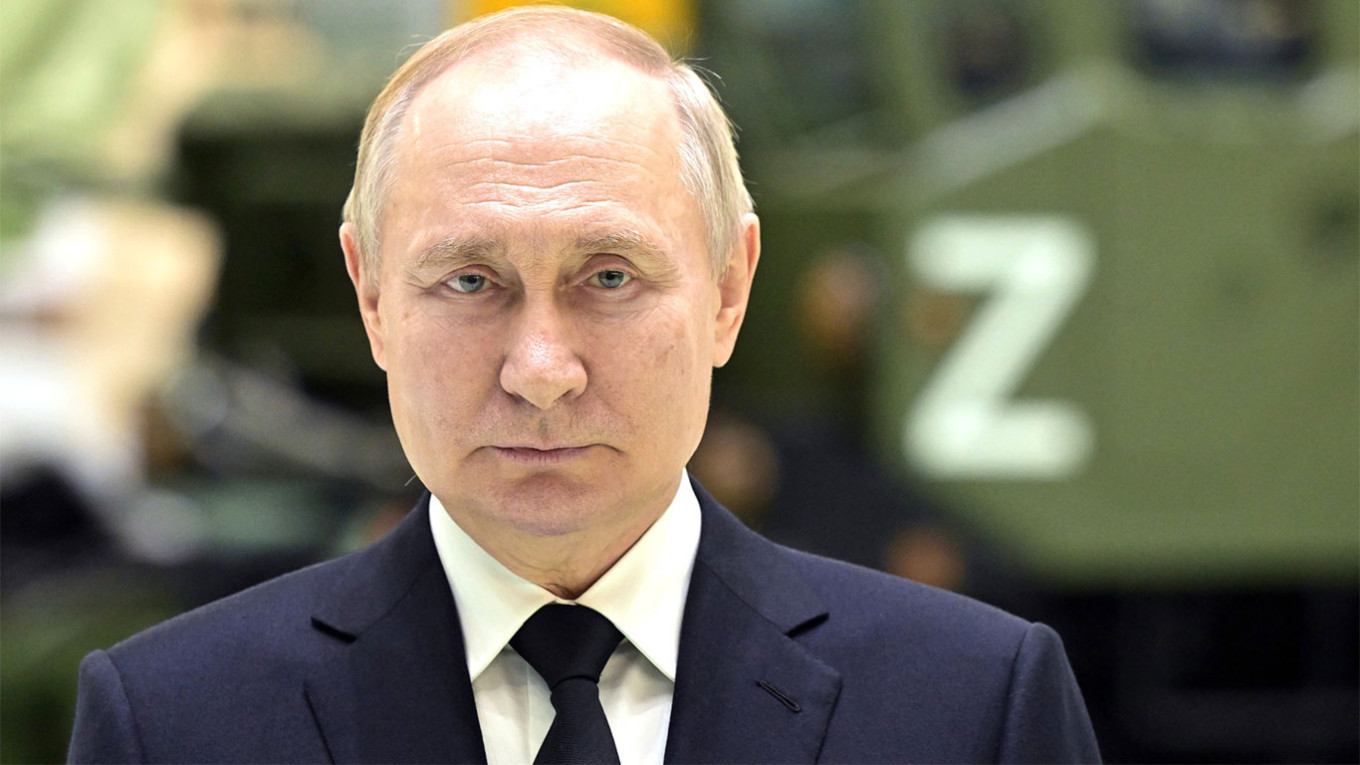When President Vladimir Putin visited the Kursk region this month for the first time after Russian forces drove out Ukrainian troops, it was reported that his helicopter came under attack from Ukrainian drones.
This situation was, in fact, deliberately orchestrated by the Kremlin.
As everyday Russians continue to shoulder the burden of Putin’s conflict, the Kremlin and its security apparatus staged this publicity event to persuade the public that the president is also enduring sacrifices for the nation, according to four current and former Russian officials who spoke with The Moscow Times on the condition of anonymity due to the sensitive nature of the information concerning Putin’s safety.
With increasing Ukrainian drone strikes, unprecedented flight cancellations at Russian airports, and mobile internet disruptions since the Victory Day celebrations on May 9, showcasing Putin’s supposed willingness to “personally risk his life” during official duties could help to mitigate public discontent.
“Citizens of Russia, look! President Putin himself is suffering, tormented and even putting his own life on the line. Your difficulties are trivial in comparison. You must brace yourselves and endure,” one official remarked, explaining the intended message of the staged events.
Indeed, Putin did travel to the Kursk region via helicopter, according to Kremlin sources.
While this area continues to be targeted by Ukrainian assaults, officials emphasized to The Moscow Times that Putin’s safety was assured at the highest level.
“No one would allow such irresponsible negligence. It wouldn’t even happen in a nightmare,” stated one government official familiar with the president’s security protocols.
“Putin isn’t keen on taking risks. The dramatic narratives we shout about on television are merely for appearance’s sake. In fact, more and more precautions are being implemented to safeguard the president,” remarked another official with experience in both governmental and Kremlin roles.
Several officials who attended events featuring Putin this year described his security as “exceptionally stringent,” with rigorous management of everything from travel routes to the health of his entourage.
“If I, in 2025, had to undergo a PCR test not only for Covid but also for acute respiratory infections and influenza, then what are we even discussing?” recalled one attendee.
The Defense Ministry leveraged state-controlled media to circulate the sensational claim that the presidential helicopter was allegedly “at the center of fending off a massive assault by enemy drones.”
However, the entire trip was conducted with high secrecy and only disclosed after Putin returned to Moscow.
Kommersant journalist Andrei Kolesnikov, a long-standing member of the Kremlin press corps, also referenced the purported attack on Putin’s helicopter in his report from the visit.
Nevertheless, The Moscow Times found that Kolesnikov was not in Kursk; his article was based on secondhand reports, and he failed to clearly indicate his absence, merely stating that he had seen “Ukrainian military drones in video footage.”
The Kremlin press pool was not included in this trip, nor were the usual professional videographers. According to two sources familiar with the visit, filming was managed by others,including at least one security officer.
This absence of standard procedures was evident in the official video released by the Kremlin, which lacked the high-quality audio and visuals typical of events featuring the president.
“Everything here is different,” a cameraman from a Russian state television channel told The Moscow Times while analyzing the footage, speaking on condition of anonymity.
“The camera shakes and jerks—not only at the under-construction Kursk-2 power plant but also during meetings with the acting regional governor and volunteers,” the cameraman noted. “The sound is recorded with the camera’s external microphone, leading to subpar clarity and frequent background noise.”
The actual security arrangements for the president are far more intricate than what the public is privy to. Each trip involves hundreds of personnel from various agencies, including the Presidential Security Service (SBP), the FSB, the National Guard, and the Interior Ministry.
Backup motorcades, alternate routes, specialized equipment, and decoy aircraft are all utilized to obscure the president’s movements.
Putin travels with such confidentiality that even intelligence officials often do not know his precise location, according to Vitaly Brizhaty, a former officer with the Federal Guard Service (FSO) who left Russia following the invasion of Ukraine.
“He doesn’t even have complete trust in his own people [the security services]. His inner circle is the only group he relies on,” Brizhaty stated.
Putin’s trips are meticulously planned months ahead, with security teams inspecting all potential locations and routes in detail. Multiple contingencies are always ready.
Additionally, Putin never flies alone, especially in proximity to combat zones. Even during “civilian” trips not connected to the war, the presidential aircraft is generally escorted by military fighter jets.
“If all this happened as claimed, then the president was not just at risk from enemy drones; there was a genuine possibility that his helicopter could have been accidentally downed by Russian air defenses,” one Russian official remarked.
Military analyst Ivan Stupak, a former member of the Ukrainian Security Service, the Ukrainian successor to the Soviet KGB, indicated that the alleged incident would represent a severe failure on the part of the SBP.
“If this is true, then every employee of the Presidential Security Service and FSO should have been dismissed,” he told The Moscow Times.
Instead, Stupak perceives a coordinated media performance benefiting various institutions simultaneously. Putin is portrayed as a courageous, almost heroic figure, while the security services receive accolades for operating under perilous conditions.
“[Top SBP officials] are advancing their careers by artificially inflating the risks to the individual they protect,” said Andrei Soldatov, an independent investigative journalist and expert on Russian intelligence agencies, to The Moscow Times. “And they know how to present it effectively.”

